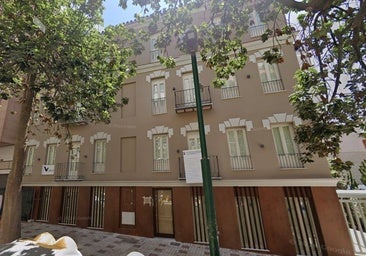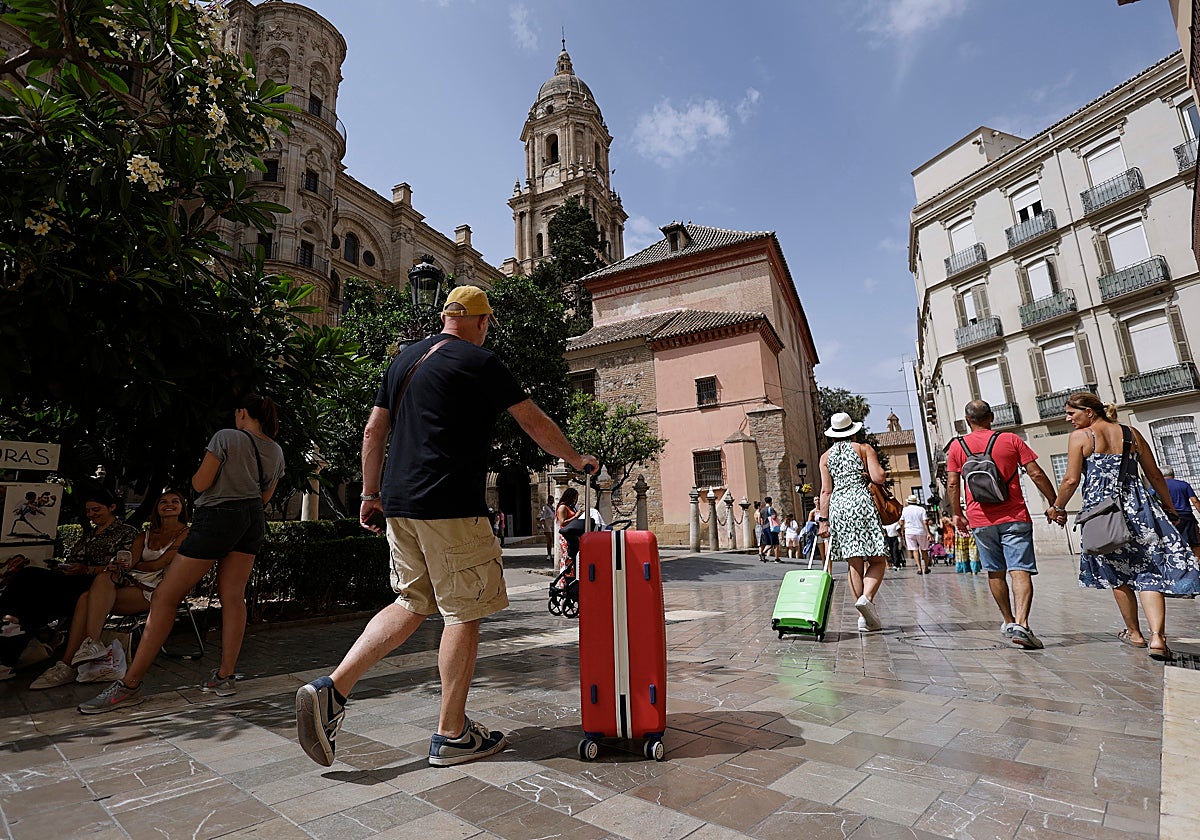Malaga will take at least a year to regulate tourist flats and lower-category hotels
The city council has not yet established the regulatory framework for tourist apartment buildings and hotels with a rating below four stars, which it announced at the end of last year
Malaga city council's plans to regulate tourist accommodation in the city will not be as immediate as mayor Francisco de la Torre would like. For a year now, the council has approved several measures to limit and curb the proliferation of holiday rental flats, which have indeed started to decrease. However, it has not yet established the regulations for tourist apartment buildings and hotels of less than four stars.
Meanwhile, permits for apartment complexes continue to rise. In the last month alone, the urban planning department has authorised three in the neighbourhoods of La Trinidad, Nueva Málaga and El Molinillo; and the environmental sustainability department has processed environmental qualifications for another six of this type of accommodation in refurbished or new buildings, as well as in commercial ground floors.
This issue, alongside the proliferation of permits for the conversion of premises into dwellings (which already occupy seven out of every ten files for building permits for residential use), was the subject of debate during the meeting of the municipal urban planning department held on Thursday, 13 June. Councillor for town planning Carmen Casero said that all these issues, as well as the moratorium on tourist housing announced by the mayor, depend on the completion of a report on tourist uses in the city. The company responsible for the report is Madrid-based Informa D&B, which will be awarded 18,083 euros for the study and analysis.
The city planning department has explained that "once the study has been drawn up, the report will be studied and put together from a legal point of view", which will support an amendment to the general urban plan (PGOU). The PGOU will then be used to regulate tourist accommodation in the city, including apartment complexes, hostels, guest houses and hotels of different categories.
Informa D&B was awarded the contract on 8 April. The completion period is 12 months, so the preliminary step for regulating tourist uses in Malaga will take a year. Once this modification of the PGOU is approved, the suspension of new tourist housing for three years can be established.
However, this change to the general plan will take longer to come into effect, possibly at least another year from the initial approval until its final approval, so it won't be until then that the regulation of tourist apartment businesses and hotels with fewer than four stars, desired by the city council to promote higher-quality tourism, could be established.
Balanced development
The city council stated that the study commissioned to Informa D&B not only alluded to the growth of holiday rental flats, but also sought ways to promote "the balanced development" of tourist accommodation in Malaga and to analyse uses. D&B will also study the relationship tourist flats have with residential uses, as well as "the effects on the ability of citizens to access housing at different levels". However, the council has admitted the legal difficulty involved in creating and implementing regulations for all types of accommodations.
From the opposition political groups, left-wing PSOE councillor Mariano Ruiz asked that special attention is paid to the phenomenon of converting commercial premises into housing, which could lead to them becoming tourist flats. "These transformations are logical in the face of the housing crisis, but they cannot become another problem," he said. For this reason, one of the aims of the city council is to regulate that newly converted dwellings do not end up as holiday rentals.
Con Málaga's deputy spokesperson Toni Morillas said that "far from solving the housing emergency that Malaga is going through", the proliferation of local housing and tourist apartment complexes "is making it worse, reflecting the lack of action or slowness in reaction of the government team". According to Morillas, the requirement that tourist flats can only be authorised if they have an independent access from the building in which they are located is causing the conversion of commercial grand floors into dwellings. "The reality is that many of these new spaces are not intended for permanent residence, so they are exploited as tourist flats," said Morillas.
The government team acknowledged in the urban planning council that there is some "trickery" involved in converting commercial spaces into residences and they announced plans to increase inspections to ensure that the rules are followed.


